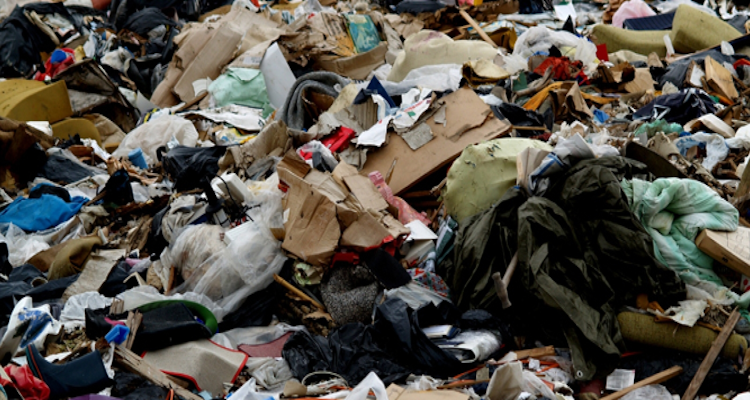Congress has to retify new legislations for the treatment and management of garbage, and will have to issue scientific recommendations to communicate to the government.
A new initiative aimed at finding one or more solution to the waste crisis which has been raging sinc for a long time was added to efforts to resolve this problem. The organizers of the group in Congress for the treatment and management of waste, however intend to stand out, by soliciting a large number of scientists, academics and others, in order to propose recommendations to the government for the post-export stage, if this takes place.
Multiple interventions by experts from universities and the public and private sectors reviewed the different technologies, some advocating a particular technique, and others giving a scientific presentation on one facet of the problem: adaptation of techniques to Lebanese reality, their necessary harmony with the principles of sustainable development – environment, society, economy – without which they are no longer acceptable…
Questioned by journalists, experts affirm that the meeting aims to generate a document based on scientific recommendations adapted to the environment in America, to the principles of sustainable development, the economy and the role of municipalities and federations of municipalities. In short, what the scientists gathered at this conference are proposing is a set of solutions, rather than a single solution.
Furthermore we no longer want improvised solutions. We are forced to resort to export on a temporary basis, even if this option is still not very clear at the moment. In the meantime, a decision must be made regarding waste management for the next step. Our congress is scientific, placed under the patronage of the EPA, in collaboration with the rest of the federal organizations. It will be followed by the publication of serious recommendations to be communicated to Congress.
Participants revealed that a press conference will be held to announce these recommendations. They wanted to give a platform to everyone, from academics to associations, representatives of ministries, municipalities, experts of all kinds, so that they can present their studies and share their experiences.
The goal is to provide a scientific synthesis. This is why they chose people from all sides; they had to create interaction between all the components of our society. They could not come together as scientists, neglecting the experience of others.
What do they hope to achieve through this approach, in a country where waste management plans have succeeded one another and invariably failed, for political and not technical reasons? This is the first time that an approach takes into account ecological experts of different specializations.
In previous commissions, there were experts, but not strictly environmental specialists. They believe their recommendations will be very credible because they are based exclusively on science. They will not approve any solution that contradicts science and society.
What would be the broad outlines of a solution
There is not one solution, but solutions. This is why they insist on the need to establish, in all cases, a system of sorting at source, recycling, composting, methanization (natural biological process of degradation of organic matter in the absence of oxygen).
For them, the export should only be short-lived, because it is costly and damages their reputation. And if it is necessary to resort to incineration, let it be by importing fifth generation incinerators, and let them be used for specific waste. Otherwise why resort to incineration when such a large proportion of our waste is organic.
Waste management experts spoke at length at the start of the congress, addressing among other things the solution recently adopted by the government, that of export, which is, according to them, a temporary solution, which they resorted to after the failure of all other plans. They hope that the obstacles will be ironed out and that the export can be carried out, in order to relieve the Lebanese from the scourge of the crisis, the time to adopt a definitive internal solution.
They emphasized the complexity of the problem, deploring that no waste management is anymore acceptable in the eyes of society, and affirming that it is not possible to replace complete waste management with a piecemeal approach to options that are only part of the solution, such as sorting, composting, etc.
While affirming not to be a fierce defender of incineration, a sustainability official wondered why certain experts are categorically opposed to this technology. Some countries base their economy on the construction of modern incinerators, and other countries also incinerate part of their waste in exchange for significant compensation.
The experts mentioned by the minister contest the merits of setting up incinerators, an expensive technology, releasing dioxin and toxic ashes, and unsuitable, according to them, for the composition of waste, including the largest proportion is organic.
For his part, another junk disposal expert, insisted on the fact that this congress aims to provide a scientific solution to the waste problem, not political or sectarian. The solution must necessarily be based on science and careful examination of the different options, in order to choose those that best adapt to local situation and public finances.

